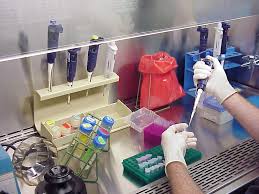Pathologist Defined
Pathology is derived from a Greek word which has meanings of “experience” or “suffering”, and is a significant component of the causal study of disease and a major field in medicine and diagnosis. The studies of diseases i general falls under the category of pathology, which include the research on the diseases using the biotechnology and plant technology. A pathologist performs the complex operations of tissues, cells , samples of body fluids and various blood samples to predict the progression of actual diseases in the body.
It is a field of research basically and it deals with the mechanisms like the development of the disease in the body and the consequences of changes in the body. The abnormalities in the body are closely studies in pathology. Pathology is classified into two branches which are clinical pathology and the anatomical pathology, There are more further divisions according to the scope of the research and severity of the disease.
The Skills of Pathologist
The history of pathology is quite old, ever since the beginning of time, diseases have hurt human bodies and the studies on the treatments and researches have been going on. Modern pathology is a mixture of 19th and 20th century when physicians studied morbid anatomy and began to understand the nature of various life-threatening diseases.Pathology was divided into a number of fields once the Physiology began to grow. The subdisciplines pathology is divided into these days aim to perform biomedical research on the diseases. Individuals who are called Pathologists are licensed individuals who can practice pathology as a medical specialist. They have to complete a full study in the medical school first and then obtain a licence to practice medicine. They make diagnosis of the diseases by using their skills and modern technologies on the body organs and tissues.

Sub-Branches of Pathology
In Anatomical pathology, the pathologist must be able to demonstrate skills in the molecular examinations of the tissues and organs and be able to perform an autopsy. Then the Forensic pathology is a sub-branch of pathology that deals with the skills of determining the cause of death in a patient by performing a modern examination on the body of the dead person. This type of pathology is very beneficial for investigating the criminal cases and facilitating the police as well.Similarly Neuropathology is a nervous system study in which a pathologist demonstrates his or her skills by studying the nervous system tissues and perform muscle biopsies in the case of brain disorders. They find out the accurate cause for the disease in the brain, if any. Similarly in the clinical pathology, the job of a pathologist is to diagnose the disease by performing a laboratory analysis on the patient and performing various tests on urine and refer them to physicians.
In United States, the pathologists are called MD or DO because the pathologists are also general physicians. They are required to at least complete a four-year bachelors degree from an accredited institution and get the at least three years of pathological training after the graduation.
I am a qualified and registered homeopathic doctor i.e DHMS RHMP. I have graduated from GCU Lahore and then studied in PU Lahore and AIOU for my LLB and MSc Pak Studies. I have written about 600 articles on health and homeopathic on cliniconline.pk and many other websites. I am expert in radiesthesia or pendulum dowsing for diagnosis of diseases. I have also served as an officer in national bank of Pakistan.